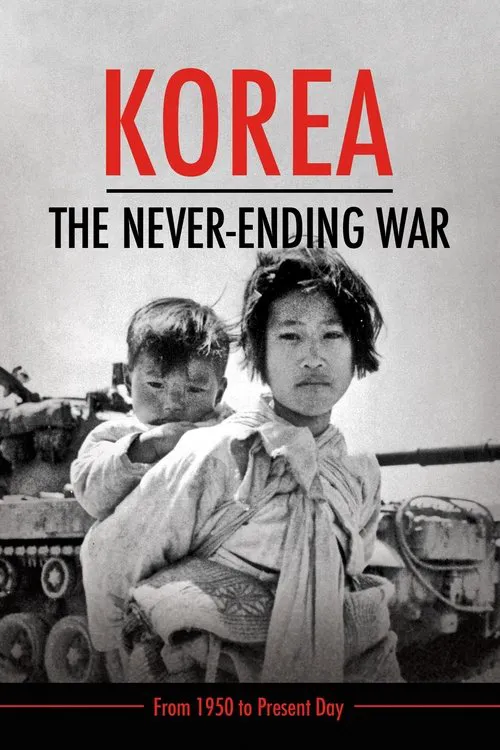Korea: The Never-Ending War

Trama
Korea: The Never-Ending War is a powerful and thought-provoking documentary that delves into one of the most enduring conflicts of the 20th century, shedding light on the often-overlooked and mischaracterized War in Korea. Written and produced by John Maggio, with a narration by esteemed Korean-American actor John Cho, this film is a timely and gripping examination of the global consequences of a war that has endured for nearly seven decades. The film begins by dispelling the idea of a simple, heroic narrative that portrays the War in Korea as a brief and straightforward conflict fought between the forces of good and evil. Instead, it paints a much more nuanced and complex picture, highlighting the intricate web of international politics and alliances that led to the outbreak of war, and the long-term implications of the conflict on the Korean Peninsula and beyond. The documentary begins with a thorough examination of the origins of the Korean War, exploring how the complex system of colonialism, nationalism, and the Cold War created an unstable environment in Korea. The film skillfully navigates the intricacies of international politics during the early 20th century, showing how the Korean Peninsula became a pawn in the global superpower struggle between the United States and the Soviet Union. The narrative deftly interweaves historical footage, expert analysis, and personal testimonies to create a rich and immersive experience that transports viewers to the tumultuous era of the 1940s and 1950s. As the film delves deeper into the post-1953 conflict, it highlights the often-overlooked events that have shaped the modern Korean Peninsula. The documentary discusses the brutal suppression of the Gwangju Uprising in 1980, the forced disappearance of students and civilians at the hands of the South Korean military, and the subsequent government crackdown on dissent. It also examines the tumultuous politics of the 1960s and 1970s, including the rise of Park Chung-hee and the eventual coup that toppled his regime. The film further explores the impact of the War in Korea on the global stage, examining its profound influence on the dynamics of international relations, global politics, and the Cold War. It discusses the pivotal role played by key figures such as US President Dwight Eisenhower and Soviet Premier Nikita Khrushchev in shaping the outcome of the war and the subsequent armistice. One of the most striking aspects of the film is its portrayal of the human cost of the conflict. The documentary intersperses interviews with veterans from both sides of the conflict, their testimonies offering a poignant and powerful glimpse into the devastating consequences of war. The film also includes eyewitness accounts from those who lived through the Gwangju Uprising, the forced disappearances, and other atrocities, providing a raw and unvarnished view of the suffering and trauma inflicted on civilians and soldiers alike. Moreover, the documentary sheds light on the lasting impact of the war on the Korean people, including the trauma, displacement, and division that continue to affect families and communities today. It presents the stories of ordinary Koreans, who have struggled to rebuild their lives and communities in the face of conflict, repression, and displacement. The film's narrative is augmented by a wealth of archival footage, photographs, and other primary sources, which provide a unique window into a pivotal moment in modern history. The documentary also includes insightful interviews with international relations experts, historians, and journalists, whose analysis and commentary provide valuable context and depth to the narrative. Throughout the documentary, John Cho's narration serves as a thoughtful and empathetic companion, bringing a sense of clarity and understanding to the complexities of the conflict. His narrative voice weaves together the various threads of the documentary, guiding viewers through the intricate and often fraught history of the Korean Peninsula. Ultimately, Korea: The Never-Ending War is a sobering reminder of the enduring legacies of the Korean War and the ongoing struggles faced by the Korean people. The documentary challenges viewers to think critically about the past, present, and future of this troubled region, and to consider the profound implications of the war for global politics, international relations, and human rights. As a nuanced and thought-provoking exploration of the Korean conflict, this film is a must-see for anyone interested in history, politics, or the ongoing struggles of the Korean people.
Recensioni
Raccomandazioni




